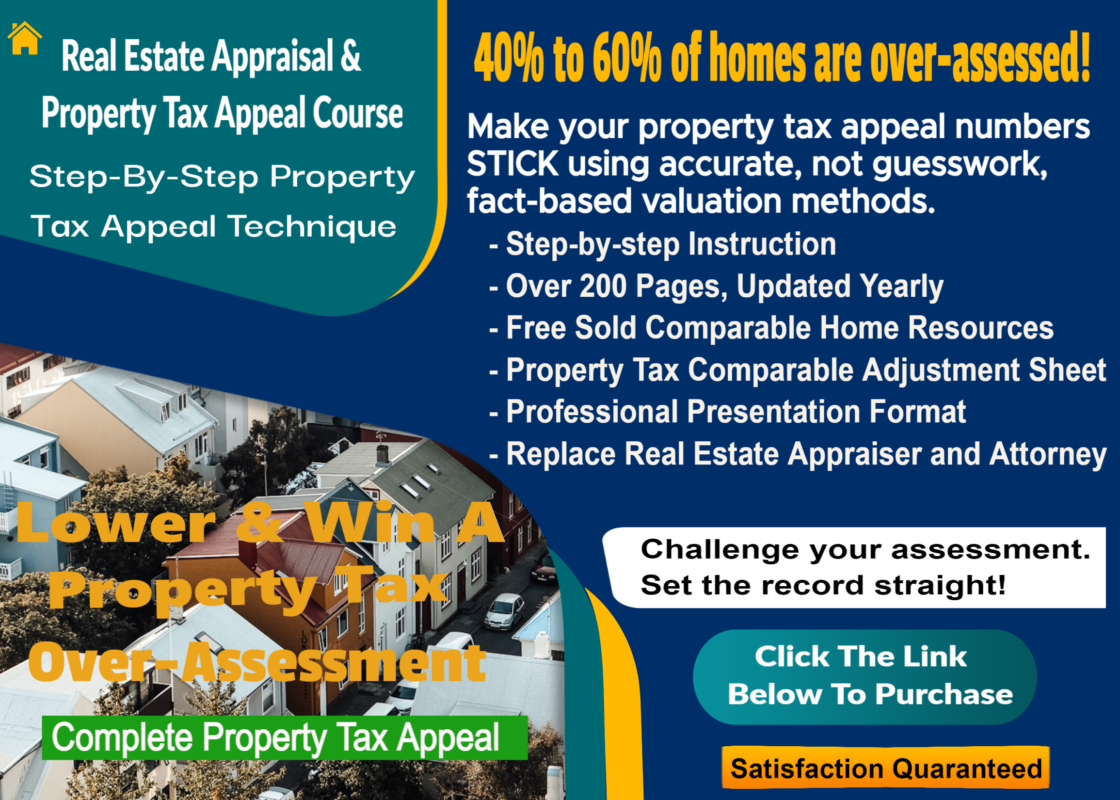Property tax reassessment and property tax appeal are related concepts in the context of property taxation.

Property tax reassessment and property tax appeal are related concepts in the context of property taxation. As such, property tax reassessment is a process by which the value of a property is revalued for tax purposes. This event may happen periodically, such as every few years. Then again, it may happen when there is a significant change to the property, such as a renovation or an addition.
Reassessing Properties
The reassessment determines the new value of the property, which is then used to calculate the property taxes owed. Property tax appeal, on the other hand, is a process by which a property owner can challenge the value of their property as determined by the tax assessor. It may be done when the property owner believes that the reassessed value is too high. Therefore, appeal unfairly high property taxes on your home.
To appeal, the property owner must typically provide evidence to support their comparative analysis claim. Therefore, that data is derived from recent sales of comparable properties in the area.
One might even find evidence of structural issues with the property as well as a host of other valuation adjustment categories. The appeal process may vary depending on the jurisdiction and the specific rules governing property taxation in that area.
Property Tax Review Procedures
Property owners should check with their local government or tax assessor’s office to learn more about the process in their area. Blanket Property Tax Assessments Blanket property tax assessments refer to a method of assessing property taxes. Here a single tax rate is applied by a hastily done inspection of an area. This is in contrast to a more targeted approach, in which properties are individually assessed based on their comparative value and taxed accordingly.
Blanket property tax assessments are more commonly used in rural areas or small towns, where there may be fewer properties and a less complex real estate market. In these areas, it may be more efficient and cost-effective for the local government to use a blanket assessment rather than individually assessing each property. However, these blanket property tax assessments can also lead to inequities in the tax burden for property owners.
Reviewing Your Property Tax Assessment For Accuracy
Properties that are assessed at a lower value may end up paying a proportionally higher amount of taxes. Likewise, properties that are assessed at a higher value may end up paying a lower proportion of taxes. This can create challenges for local governments in ensuring a fair and equitable distribution of the tax burden.
In some cases, local governments may choose to implement a hybrid approach, in which a blanket assessment is used as a starting point. However, individual assessments are also conducted for certain properties to ensure more accuracy and fairness in the assessment process.
Average Over-Assessments In The U.S. Are In The 40% to 60% Range
In the United States, property assessments are typically conducted by local government entities, such as county or city governments. As such, they are used to determine the value of a property for tax purposes. Estimates tell us that the average over-assessment rate in the U.S. is in the 40 to 60% range.
The assessment process can vary depending on the jurisdiction. That being said, it generally involves evaluating the physical characteristics of the property, such as its size, location, and condition, as well as the current real estate market conditions. Not much time is spent on that valuation process by assessors. Very little in-depth comparative analysis, if any, is done by blanket assessors.
While it is possible that properties may be over-assessed, it is difficult to determine a precise percentage of over-assessment across the entire country. Factors such as changes in the real estate market, and differences in assessment methods across jurisdictions can prevail. Therefore errors in individual assessments can all contribute to variability in assessment accuracy.
Choose A Free Workbook Property Tax Appeal Overview
It’s worth noting that property owners who believe their property has been over-assessed may be able to appeal the property tax assessment and provide evidence to support their claim. The appeals process varies by jurisdiction. Property owners should check with their local government or tax assessor’s office for more information. Better yet, visit https://access2.propertytaxax.com so that you have the means to do a proper analysis.